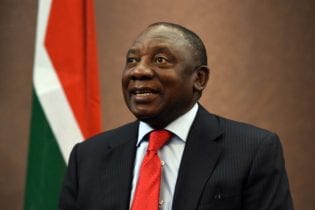On July 16 the South African government and the European Commission discussed the issue of climate change stressing the need to intensify urgent actions to address the challenge at the international, regional, national and grassroots levels.
Edna Molewa, South African minister of Environmental Affairs, and Maroš Šefčovič, vice president of the European Commission for the Energy Union (EU – the administrative energy cluster within the European Union), met to discuss cooperation on climate change. The vice president and an Environmental Affairs delegation also visited the Khangezile School in KwaThema, Springs near Johannesburg to see at first hand a practical example of South Africa-European Union cooperation with regard to the application of green technologies in community centres.School green technologies
According to Frank Oberholzer of the EU delegation, “Some of the technologies used by the school include solar panels which enable Khangezile to meet the majority of its daily energy demands. These can be supplemented with grid power when necessary.” In addition, the school has its own biogas converter. “This system receives biowaste in the form of vegetable matter and this decomposes into methane. Gas from the methane is then relayed to the school’s kitchens and used to cook hot meals for students,” explains Oberholzer. In addition, Khangezile has its own vegetable garden, where residual nutrient-rich slurry from the biogas converter can be used as fertiliser. “The school also has large rooftop rainwater harvesting tanks, which it uses to water the vegetable garden,” adds Oberholzer. Molewa conveyed the South African government’s appreciation to the EU for its ongoing support for a number of environmental projects in South Africa and elsewhere in Africa. Commenting on the Khangezile School in particular, the minister commended the initiative’s strong focus on enhancing public awareness of the climate change, particularly the important role of women and youth in overcoming these challenges.Green and ocean economies
The partners confirmed that environment and climate change remain a priority area for bilateral cooperation, as outlined in the South Africa – European Union (SA-EU) Strategic Partnership of 2007 and agreed to enhance their dialogue in these areas. Notably, the green and ocean economies were covered in the context of the SA EU Forum on Environment and Sustainable Development. In this regard, the partners noted progress in development cooperation with EU support through non-governmental organisations to projects ranging from waste management to eco-tourism to permaculture gardens to carbon farming.Many of these projects are being co-funded by the South African government.








